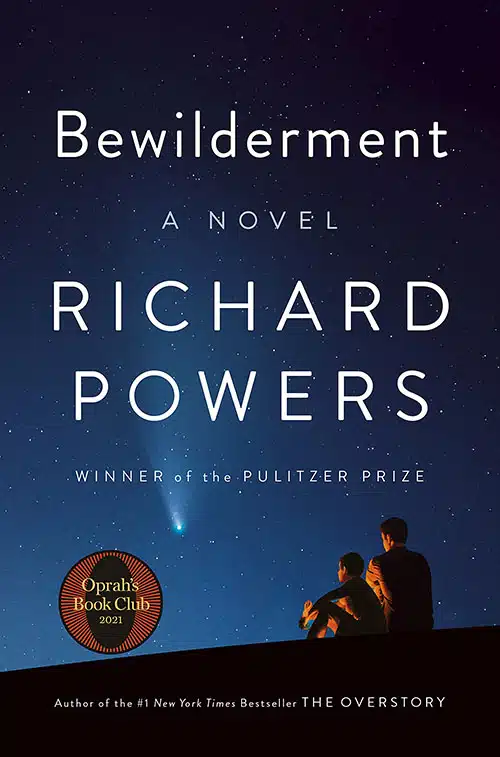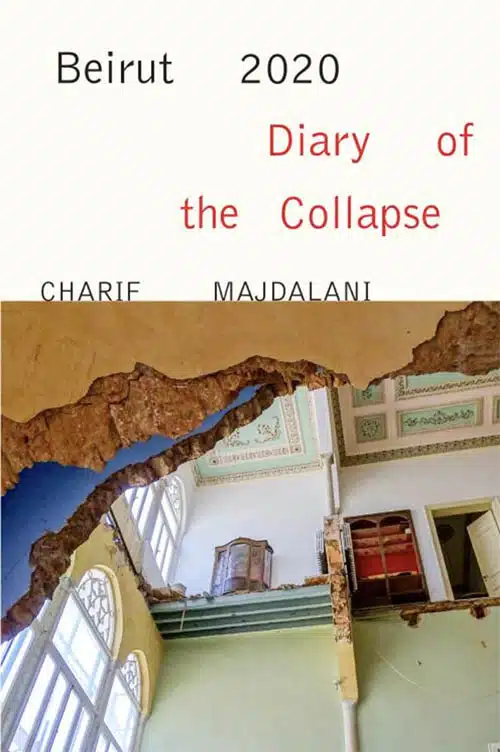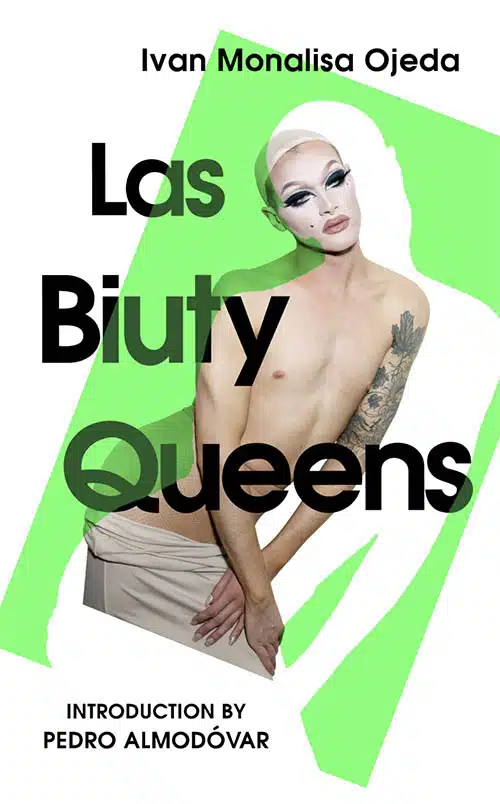As is PopMatters‘ ethos throughout our 22 years of publishing, there’s a strong current of feminism electrifying our picks for the Best Books of 2021. Be it overt, subtle, even arguable in the books themselves, the works that we appreciate most are informed by that overarching, positive, diverse, and inclusive sensibility. As always, our strong respect for those who have come before and our curiosity and appreciation of new artists, new ways of thinking and being, and new challenges are reflected in this list.
Here you will find books of science fiction, comics, short stories, memoir and biography, essay collections, photography, and of course, literature and works of non-fiction that will interest you. Whether the authors’ approaches to their subjects are satirical or serious (or both), whether their stories revel in the fantastic realm or are rooted firmly in fact (or both), each work presented here will strike a note with you.
This list is arranged in alphabetical order by title, except for the Honorable Mention at the end of this list. – Karen Zarker
After the Taliban defeat, the US discovered itself essentially in possession of a largely rural nation whose already negligible modern infrastructure had been decimated during the Soviet occupation and the following civil war (which caused anywhere from one to two million Afghan lives and epic levels of suffering). American diplomats and State Department officials argued that leaving Afghanistan in that shape was not just unconscionable but unwise, leaving a strategic vacuum. But years of cuts had left the non-military side of the government in poor shape to do anything on that scale.
Between 2001 and 2020, the US spent over $143 billion on aid, security, and reconstruction in Afghanistan. This was more, Craig Whitlock notes, than was used by the Marshall Plan to put a shattered Western Europe back together after World War II. A good part of The Afghanistan Papers, and among its more infuriating aspects, deal with just how much of that money was wasted. Ten, 20, 50 years hence, when a once-again ascendant America is looking to prove itself militarily in a faraway land, The Afghanistan Papers will be one of the books that that war’s hapless planners will eventually kick themselves for ignoring. – Read Chris Barsanti’s full review here.
Alice Zeniter is a French novelist, translator, scriptwriter, and director. In The Art of Losing (her fourth novel), she examines the history of the Harkis: a generic term referring to Algerian paramilitaries who fought alongside the French army during the Algerian War of Independence (1954-62). Often seen as traitors, Harkis and their families have been systematically misrepresented and mistreated. Thus, abundant literary allusions highlight the thin line between literature and history and emphasize the importance of oral histories — or oral histories made significant by their absence. In a sense, Zeniter seems to argue that the history of the Harkis can only be explained through the inadequate, approximate language of general culture. And yet the narrator also seems to say: why hasn’t this story been told before? And better?
Zeniter’s novel has a defiant quality: by writing in such a relatable fashion, and with recourse to so many well-known films, television series, and works of canonical literature, she reframes the question about the legitimacy of representation. In short, she seems to argue that it’s not about legitimacy so much as a willingness to write and read and listen. Language will always falter, but what better way to unearth buried stories than to write new stories about them? – Read Airelle Perrouin’s feature article here.
This summer, the World Bank declared Lebanon’s ongoing economic crisis to be among the world’s top ten worst since the mid-1800s. The political crisis is just as serious, bearing as it does responsibility for the country’s economic collapse. Both are framed in sharp relief by Charif Majdalani’s riveting chronicle. It offers an award-winning novelist’s intimate, illuminating vantage into what’s happening in his country. His ability to vividly bring the setting and people to life places the reader right at the heart of the maelstrom.
Beirut 2020 puts the crisis in historical perspective, but the short, incisive nature of the diary entries means some of them assume the quality of allegorical parables. The range of warnings to be found in an account like this are myriad. On one level, of course, it’s a very specific chronicle of social and political events in recent Lebanese history. But on a broader level, it screams warnings that are more universal in nature. – Read Rhea Rollmann’s full review here.

Bewilderment
Richard Powers
[W. W. Norton]
It is easy to say that relatively few readers of Richard Powers’ 2018 masterwork The Overstory come away unchanged: their opinions about the interrelations of trees, at the very least. His latest, the slim and chilling Bewilderment, will likely not change many minds, but it leaves a mark nonetheless. It’s a future-set story—though the setting is so familiar to present-day America that it feels just around the corner—about widowed scientist Theo who takes a radical approach to his nine-year-old son Robin’s emotional disturbances. Using an AI-enabled neurofeedback loop, a team of researchers imprints Robin’s mother’s brain patterns onto his own, allowing a mental and emotional synthesizing that seems to make him both calmer and more mature.
Of course, anybody who remembers Daniel Keyes’ sci-fi short story “Flowers for Algernon” knows that miracle cures only exist in pharmaceutical advertisements. Bewilderment can be a tough read, given the underlying tragedy of its conceit and Powers’ achingly angry depictions of a paranoid, short-sighted, rage-prone world churning furiously toward cultural and climate collapse. But Robin’s unwavering world-saving idealism and Powers’ glorious language provide some fine examples of things worth fighting for. – Chris Barsanti
Jonathan Franzen’s sixth novel, Crossroads, is a 600-page account of a married couple and their children in 1972 suburban Illinois. Russ is a pastor who leads his church’s youth group, which gives the novel its title, and who wants to break his midlife crisis by straying from his wife, Marion, who has a history of secrets of her own. Clem is the college-aged son wrestling with both romantic intimacy and the guilt of his Vietnam deferment. Becky is the popular daughter balancing religiosity and carnal high-school angst. Perry is the precocious but drug-addled teen son whose desire to reform is eclipsed by darker urges.
With his virtuosic hysterical realism, arresting line-by-line prose, and shifting third-person points of view, Franzen peels back layer upon layer of interiority and digs dizzyingly deep into the psyches of his characters. The novel’s church setting ratchets up the scrupulosity and self-contradictions until ordinary folks in seemingly commonplace scenarios are rendered fascinatingly crucial through Franzen’s remarkable craft. Eventually, these characters’ continual efforts (and frequent failures) to lead ethical lives lead to moments of palpitating tension in Franzen’s most dextrous novel to date. – Steve Leftridge
It’s rare, these days, for a short story collection to err on the side of the joyful. That alone renders Las Biuty Queens – the debut short fiction collection from Iván Monalisa Ojeda, a performer, and writer originally from Chile – refreshing. There’s a subtle tension in each of the stories that deftly conveys the precarity of their protagonists’ lives: sex workers navigating shifting patterns of policing; trans characters struggling to raise the funds to transition; undocumented migrants earning money to send home to their families.
Death and danger are constants: disappearances and funerals are a part of life. Yet even these grim realities provide the context in which solidarity and friendship are forged. One could almost burst at the vivacity and zest of these characters. Ojeda has produced a magnificent debut that’s both politically important, as well as simply beautiful to read. – Read Rhea Rollmann’s full review here.
In 2015, Shiori Ito was an aspiring journalist on an internship with the Japanese branch of Reuters. She was looking for more permanent work, preferably a reporting job abroad. One of her leads was Noriyuki Yamaguchi, a US-based bureau chief with Tokyo Broadcasting System (TBS) she had met while studying in New York. When she emailed him seeking job leads, he hinted at an exciting job prospect and asked to meet with her during an upcoming visit to Tokyo. The night they met he raped her, likely using date-rape drugs.
The book’s title – Black Box – is the term used by prosecutors to refer to the closed room in which a sexual assault takes place; a space in which they claim it is impossible to objectively know what went on and whether consent was given or not. Ito’s book smashes that box open, revealing the misogynistic and regressive attitudes that belie its lingering power in Japan’s legal system. The story it recounts is astonishing, infuriating, and yet ultimately inspiring. “I want to continue to make things visible, to bring them into the light,” writes Ito. “Because that’s how they will change.” – Read Rhea Rollmann’s full review here.







